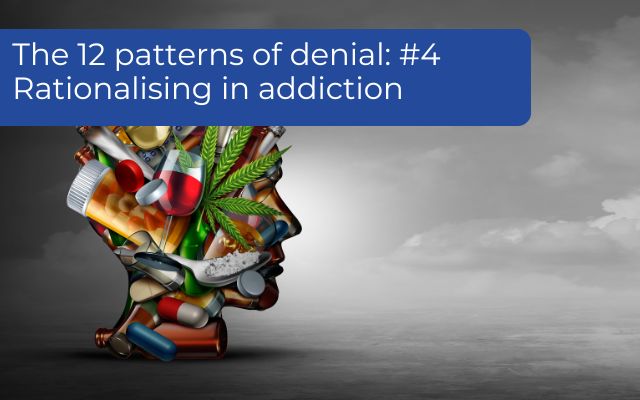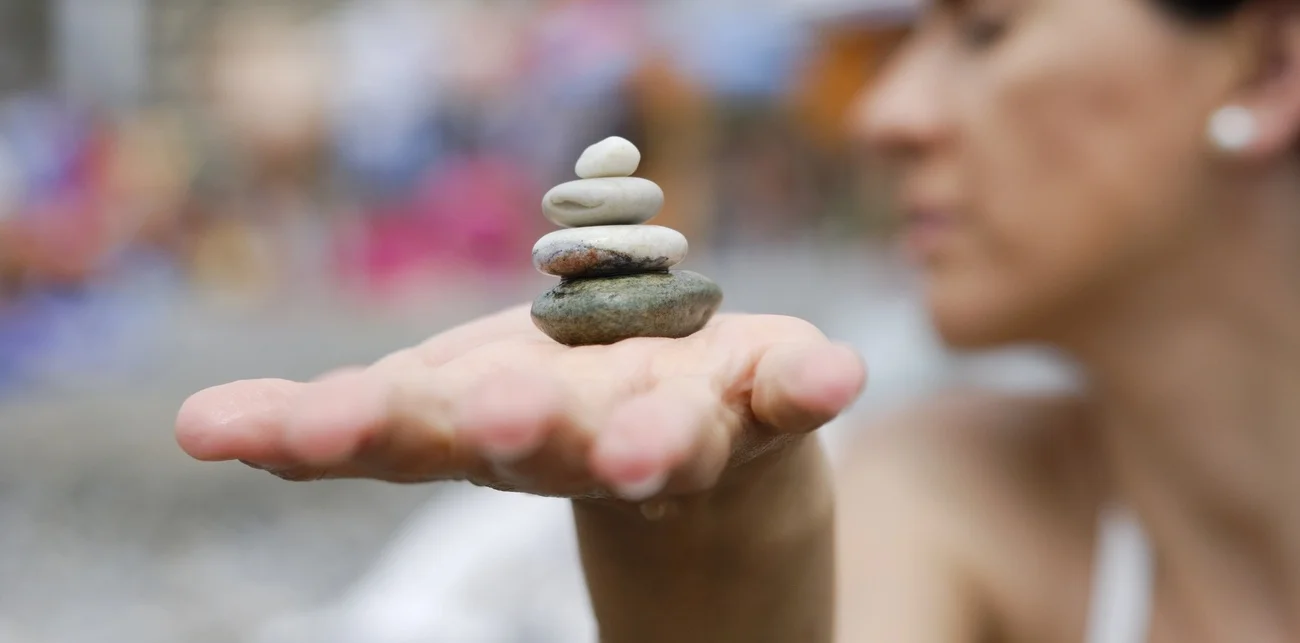
Rationalising fuels denial and sustains addiction
Are your explanations for continued substance use keeping you trapped in denial and preventing meaningful recovery?
People with addiction or substance abuse problems use different forms of denial to keep themselves in the addictive cycle. Denial can be a dysfunctional protection mechanism which you may use to protect yourself from having to recognise, deal with and accept the reality of what is occurring in your life. This is often unconscious.
To recover from addiction, it is incredibly important to be able to identify denial. The 12 patterns of denial were developed by international addiction expert Terence Gorski.
What is Denial in Addiction?
Denial is the first issue to address when addicted persons enter treatment or try other ways of recovering from their substance use disorder.
Denial is when someone
- Ignores reality
- Downplays reality
- Distorts reality
Reality is painful and difficult, and the addict turns to substances or other addictive behaviours to cope – i.e., to escape.
In the words of Dr Diamond: “The addict cannot tolerate reality… Neither internal reality nor external reality”. “They find reality repugnant, uncomfortable, and overwhelming, and prefer, like the psychotic, withdrawal into fantasy, bliss, or oblivion over reality.”
The first of the 12 steps of Alcoholics Anonymous, and other 12-step programmes, is completely geared at confronting and overcoming denial: We admitted that we were powerless over alcohol/drugs – that our lives had become unmanageable.
Without truly confronting and overcoming denial, no matter how much you want to get better, denial will trip you up and prevent you from recovering. This can be a tricky process because denial comes in so many forms and has become so normalised to the addict that they struggle to even recognise when they are using a given pattern of denial.

What is Rationalising in Addiction Denial?
“If I can find a good enough reasons for my problems, I won’t have to deal with them”
Rationalising by definition is the “attempt to explain or justify (behaviour or an attitude) with logical reasons, even if these are not appropriate”. Most of us rationalise but, in the addict, this can serve as a dangerous denial strategy that can prevent someone from getting help causing their addiction to progress and their situation to become more dire.
Rationalising is a defence mechanism used by addicts or alcoholics when they know that their addiction is becoming problematic but they don’t want to stop. Rationalisation provides them with ‘justifiable’ reasons to continue feeding their addiction.
Some of these ‘reasons’ or justifications include
- “I can stop at any time”
- “I need alcohol or drugs to be sociable”
- “I’m not hurting anyone else”
- “If you had my problems, you would also be drinking or using”
- “I don’t have a problem because my drugs were legally prescribed by a doctor”
- “It’s not the right time for me to quit now, I will stop sometime in the future when I’m ready”
Like minimising, rationalising is a more subtle form of denial because there is a partial admission by the addict that their using or drinking has become problematic. It is sometimes difficult to argue against an addict using ‘rational’ arguments to justify their substance abuse.
Rationalisation is quite insidious addicts ingenious and creative when it comes to justifying their use of drugs or alcohol. It takes a skilled professional to confront an addict in a tactful and effective way so that they reconsider the justifications they have been using and recognise that these ‘reasons’ aren’t centred in an objective reality.
Addicts have a strong, often unconscious, desire to protect their addiction and can use the denial pattern of rationalising to keep themselves in denial. It is important for addicts to break through denial to begin the process of recovery.
Are you or a loved one using the denial pattern of rationalising? We are experts in breaking denial, contact us today.
Read more about the 12 patterns of denial below:
- Avoidance
- Absolute Denial
- Minimising
- Blaming
- Comparing
- Compliance
- Manipulation
- Flight Into Health
- Recovery by Fear
- Strategic Hopelessness
- The Democratic Disease State
Rationalising in addiction keeps people trapped in denial and blocks recovery, spot the excuses that protect continued substance use and reclaim control. Changes team counsellors are here to help you.Rationalising in Addiction That Blocks Genuine Recovery








